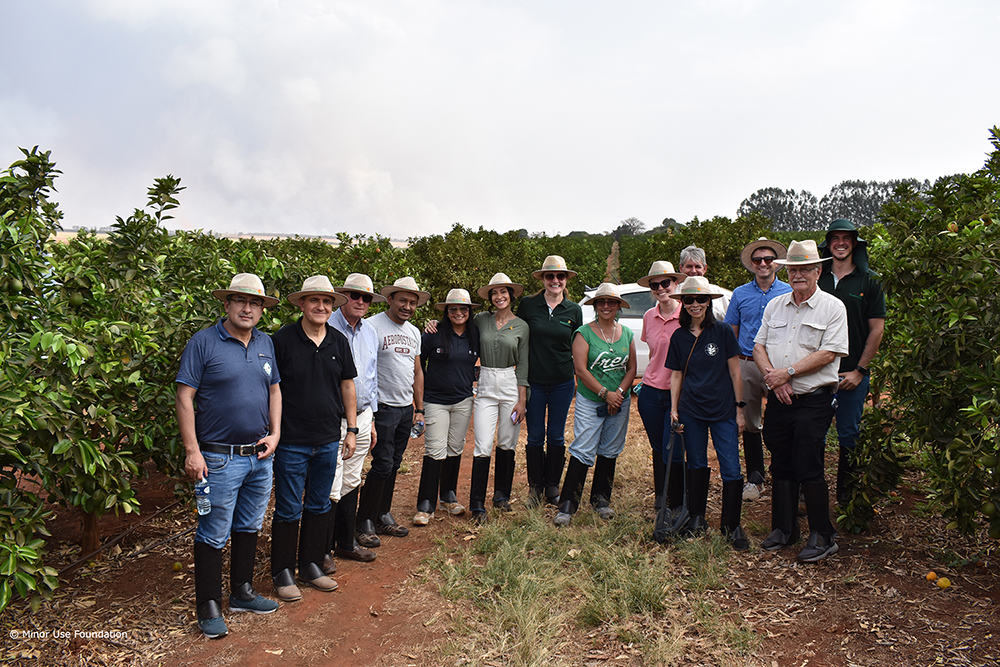SIANI is in the process of signing contracts with six new expert groups that will carry out important projects during 2025 and part of 2026. The incoming groups bring valuable knowledge on a broad range of topics – stay tuned for updates on their work on dryland agroforestry in Africa, tropical fruit cultivation, small-scale fisheries in Latin America, soil health in Kyrgyzstan, wild forest foods in Asia, and insect farming.
SIANI has a long history of forming partnerships with expert groups that drive forward-looking projects related to sustainable, rights-based and inclusive food systems. After an open call last year, six new groups are signing contracts with SIANI to initiate projects based on their expertise and interests.
The expert group concept has proved to be very successful. It offers a chance for local actors to develop new knowledge on urgent challenges and implement solutions in their regional contexts, with support from SIANI. Since these are multisector groups, they often foster important societal collaborations beyond the project period. Furthermore, insights from the expert groups are widely communicated so that the SIANI network can learn from them.
SIANI’s Programme Director Madeleine Fogde is looking forward to following the new groups:
“We were very pleased to receive so many high-quality applications from many parts of the world. The expert groups that were finally selected presented interesting projects and many innovative ideas. Their expertise and reflections will be valuable to the entire SIANI network.”
Here are the six new SIANI expert groups:
Dryland Agroforestry in East Africa
This expert group, coordinated by Vi Agroforestry, will explore ways to transform food systems and enhance biodiversity in dryland areas. Implementing agroforestry in dryland areas is relatively new and can improve food security for both farmers and agropastoralists in East Africa, reducing the risks of tensions between the two groups. Learn more.
Insect-based Proteins
Coordinated by the Madagascar Biodiversity Center, this expert groups focuses on an innovative approach where black soldier flies are farmed to recycle nutrients and produce a sustainable and secure protein fodder for pigs and poultry, thus contributing to better livelihoods for small-holder farmers. The group increases collaboration between farmers, researchers and other experts in Madagascar. Learn more.
Reviving the Roots
Land degradation is a serious problem in Kyrgyzstan, partly because of unsustainable farming techniques introduced during and after the Soviet era. The expert group Reviving the Roots, coordinated by Centralasiengrupperna (The Central Asia groups), uses art and culture to instead revive interest in traditional, ecocentric Kyrgyz practices to improve soil health. Learn more.
Small-scale Fisheries in Latin America
The aim of this expert group is to raise awareness of how small-scale fisheries contribute to food security and livelihoods in five Latin American countries. The expert group, coordinated by Too Big To Ignore (TBTI) Global, seeks to amplify the voices of fishing communities so that their rights are respected and that their insights and concerns influence societal debates and political decisions. Learn more.
Tropical Fruits Liaison
Small-holder farmers could increase their yields and incomes from orchards if they had better access to safe and effective pest control. The expert group Tropical Fruits Liaison, coordinated by the Minor Use Foundation, explores how this can be achieved and brings together tropical fruit growers, specialists in crop control and regulatory experts from Africa, Latin America and Asia. Learn more.
Wild Foods in Asia
This expert group highlights the importance of wild forest and traditional food crops for food security, biodiversity, and livelihoods. Many rural and indigenous communities in Asia have through generations developed an extensive knowledge about wild forest foods, but that expertise is now in decline. To help reverse the trend, the expert group brings together local communities to document specific food species and share such knowledge. Wild Foods in Asia is coordinated by the Non-Timber Forest Products Exchange Programme Asia (NTFP). Learn more.
